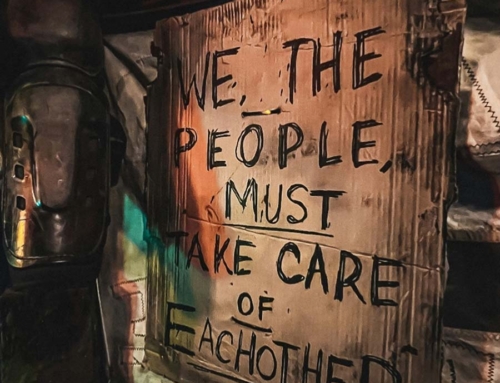
Marketeers understand the importance of Gen Z (born 1997-2013) as the consumers of tomorrow, so in our most recent study we set out to get to know this generation a little better.
Gen Z is a generation that cares – about the planet, about ethics, and about the impact of their choices – but not all product categories are equal in their eyes. A key consideration when seeking to connect with Gen Z is understanding their specific outlook & behaviour on sustainable issues in your category.
So, when it comes to sustainability, how do Gen Z operate across different industries? Let’s break it down:
The Four Gen Z Category Mindsets: Where Does Your Brand Fit?
- Guilty Inaction: “I Know I Shouldn’t, But…”
Some industries are immediately acknowledged as problematic, but Gen Z can feel stuck due to convenience, price, or social pressures. Young people often feel guilty but make the choice to go ahead anyway because the benefits or circumstances make it too difficult to adopt alternatives.
Examples:
- Air travel – although some try to take fewer but longer trips
- Tech ‘ecosystems’ – feeling trapped in a connected world
- Fast food – a guilty pleasure that can’t always be denied
- Driving a petrol vehicle – financial & system barriers to buying electric
What Brands Can Do:
- Seek to introduce guilt-free, accessible & affordable alternatives
- Adapt the narrative – celebrate progress, not necessarily perfection.
- Make sustainable choices feel aspirational and less of a negative trade-off
- Active Agency: “It’s Easy to Do the Right Thing”
In some categories, social norms or the regulatory environment make sustainable actions the default for Gen Z. When something is convenient and widely accepted, they feel empowered to make the ‘right’ choice without much effort and the positive reinforcement by their peers drive increased engagement.
🔹 Examples:
- Recycling packaging
- Carrying reusable water bottles
- Buying and selling second-hand clothes
- Avoiding plastic straws
What Brands Can Do:
- Stay ahead of regulations— e.g. upcoming EU ‘Green Claims Directive’, will require brands to have more robust sustainability claims
- Make it effortless—if sustainability is the easy choice, more people will adopt it.
- Normalise sustainable behaviours: reinforce benefit of positive action in comms
- Celebrate action- even if easy, recognise and reward steps taken
______________________________________________________________________
- Below the Radar: “Never Really Thought About It”
Some industries don’t trigger yet ethical concerns for Gen Z. But as social media, and vocal activists raise awareness, these sectors could quickly come under scrutiny. Brands that ignore this risk might find themselves at a competitive disadvantage … or at risk being ‘cancelled’ by Gen Z shoppers.
🔹 Examples:
- Gyms and wellness services
- Tech and smartphones
- Finance and banking
- Protein powders and sports supplements
What Brands Can Do:
- Get ahead of the conversation – action can protect against backlash later.
- Educate – raise awareness but must be manageable and in an accessible medium.
- Innovate before regulation forces change.
- Accidental Action: “I Was Saving Money or Being Healthy ”
Some sustainable action happens not because Gen Z are directly seeking to behave ethically but because they align with other priorities, like saving money or improving health. These behaviours are arguably the most impactful on mass social change as they offer a win-win for Gen Z consumers.
🔹 Examples:
- Eating more veg and less meat for health reasons
- Meal prep over convenience foods for health & financial savings
- Buying second-hand clothing for a more unique sense of style
- Cycling or taking public transport for financial or efficiency reasons
- Reading electronic rather than printed media for convenience reasons
What Brands Can Do:
- Align sustainability with affordability and convenience.
- Position ethical choices as smart, not just “right.”
- Design & position products and services that deliver a primary personal benefit, with secondary sustainable benefits which can also help endorse their choice.
This way of thinking aligns with the sociological practice theory approach to sustainable behaviour: it’s not just a matter of individual choice, there needs to be a supportive infrastructure and system in place for people to fully engage in sustainable consumption.
Key takeaways for brands
Gen Z wants to support brands that align with their values, but their action varies across categories. The brands that win will be those that:
- Make sustainable choices effortless: integrate them into products & services with low effort needed from Gen Z.
- Stay ahead of regulation: new laws will reshape expectations.
- Recognize shifting expectations: what’s ignored today could be scrutinized by Gen Z audiences tomorrow.
- Tap into ‘accidental’ change: frame sustainability as a smarter, cost-effective, healthier choice.
By understanding where your brand and business fits in this framework, you can create a strategy that resonates with Gen Z—not just in theory but in action.
Want to know more about our Gen Z – Connected Lives research series? Get in touch with us at info@brand-legacy.com






